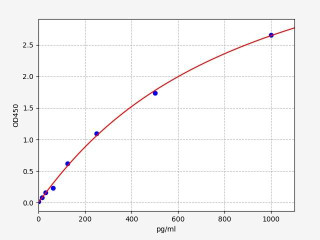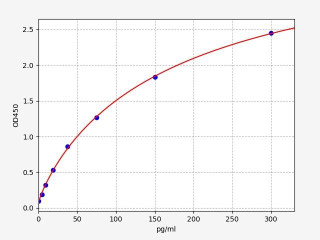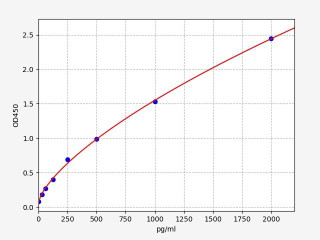In Vitro Vs In Vivo Studies
Discover the distinct roles of 'In Vivo' and 'In Vitro' in biological research, where one offers a natural context and the other precise control, both vital for scientific advancement.
Key Takeaways:
- "In Vivo" studies are within living organisms, offering physiological relevance.
- "In Vitro" studies occur outside organisms, allowing controlled experiments.
- Both methods are complementary, each providing unique scientific insights.
- "In Situ" studies observe phenomena in their natural environments.
In the field of biological research, scientists employ various experimental methods to understand complex biological processes. Two fundamental approaches at the forefront of this exploration are "In Vivo" and "In Vitro" studies. These terms, which translate to "within the living" and "within the glass" in Latin, respectively, represent two distinct experimental contexts with unique advantages and applications.
Table of Contents
Jump to a section:
What is the Difference Between In Vitro and In Vivo?
The key distinction between In Vivo and In Vitro studies lies in their experimental contexts. In Vivo studies are conducted within living organisms, allowing researchers to observe biological processes in their natural and complex environment. In contrast, In Vitro studies take place outside of living organisms, often using isolated cells or biomolecules in controlled laboratory settings. While In Vivo experiments offer physiological relevance and long-term observations, In Vitro studies provide controlled conditions and higher throughput, making them complementary approaches in advancing our understanding of biology and medicine.
In Vitro Vs In Vivo
In Vivo Studies
In Vivo studies involve conducting experiments directly within living organisms, such as animals or humans. These investigations allow researchers to observe biological processes in their natural and holistic context, providing several significant advantages in biological research.
One key advantage of In Vivo studies is their high physiological relevance. By studying biological phenomena in intact organisms, researchers can observe how different organ systems interact and respond to stimuli, mimicking real-life situations. This physiological fidelity offers a deeper understanding of complex interactions and facilitates more accurate conclusions about biological processes.
Additionally, In Vivo studies enable the examination of long-term effects resulting from interventions or treatments. Researchers can monitor changes over time in living organisms, providing valuable insights into disease progression or the efficacy of therapeutic strategies. Furthermore, these studies can identify potential side effects or unexpected outcomes that may not be apparent in simpler experimental models.
Animal Studies
In Vivo studies, involving animal models, are integral to advancing biological and medical research. These studies are conducted within living organisms, utilizing animals as experimental subjects to understand complex biological processes and their implications for human health.
Animal models provide valuable insights due to genetic and physiological similarities with humans, particularly in mammals. Researchers use animal studies to investigate diseases, test potential therapies, and explore underlying mechanisms. By manipulating variables such as genetics, diet, and the environment, researchers create controlled yet biologically relevant experimental settings, simulating disease conditions, and studying treatment efficacy.
Animal studies offer advantages not possible in human subjects, such as performing invasive procedures, collecting tissue samples, and conducting longitudinal studies. These insights contribute significantly to our understanding of disease progression, treatment strategies, and physiological responses.
However, ethical considerations are essential in animal research. The scientific community promotes the 3Rs principle (Replace, Reduce, Refine) to minimize animal usage, refine procedures to reduce discomfort, and explore alternatives. Responsible and ethical animal studies strike a balance between scientific progress and animal welfare, enabling crucial advancements in medical knowledge and treatments while respecting ethical guidelines.
Clinical trials
In Vivo studies, in the form of clinical trials, are pivotal in advancing medical research and bringing novel treatments to patients. Clinical trials are conducted within human subjects and involve the systematic evaluation of medical interventions, such as drugs, medical devices, or behavioral therapies, to determine their safety, efficacy, and potential side effects.
Clinical trials typically follow a rigorous protocol, involving several phases. Phase I trials focus on evaluating the safety and tolerability of the intervention in a small group of healthy volunteers. Researchers often compare the effects of new drugs against those of a placebo during these early stages. In randomization, the researchers randomly assign the participants to either the treatment or placebo group.
Phase II trials expand the study to a larger group of patients to assess the treatment's effectiveness. Phase III trials involve an even larger population and aim to compare the new treatment with existing standard therapies. In these randomized controlled trials (RCTs), researchers compare the results from participants who received the new drug or intervention with those from participants in the control group, who receive an alternative treatment, such as a placebo or an older form of the new drug.
To ensure ethical conduct, clinical trials must adhere to strict guidelines to protect the rights and safety of participants. Informed consent is a fundamental principle, ensuring that individuals understand the trial's purpose, potential risks, and benefits before enrolling. Ethical review boards closely monitor trial protocols to ensure scientific validity and participant protection. Blinding, another critical aspect of clinical trials, helps reduce bias or systematic errors that could affect the study's design and the validity of its results. Blinding involves withholding information that could influence the participants until the trial ends, and it can also extend to the research team conducting the study.
In Vitro Studies
In contrast, In Vitro studies are conducted outside of the living organism, typically using isolated cells, tissues, or biological molecules. These experiments take place in controlled laboratory settings, allowing researchers to manipulate and analyze specific aspects of biological systems with precision and reproducibility.
One primary advantage of In Vitro studies is the ability to investigate biological phenomena under controlled conditions. By isolating specific components, researchers can simplify the experimental setup and remove confounding factors present in complex organisms. This controlled environment enables rigorous hypothesis testing and the establishment of direct causal relationships between variables.
Moreover, In Vitro studies offer higher throughput and cost-effectiveness compared to In Vivo experiments. Researchers can conduct multiple experiments simultaneously, rapidly screening large numbers of compounds and expediting drug discovery and other research endeavors. Additionally, In Vitro studies often require fewer resources and ethical considerations, making them more accessible and widely applicable.
IVF
In Vitro Fertilization (IVF) is a specialized medical procedure falling under the category of In Vitro studies. It is a widely used assisted reproductive technology designed to help individuals and couples facing fertility challenges to conceive a child. IVF involves the fertilization of an egg by sperm outside of the human body, in a laboratory dish. This procedure has significantly revolutionized the field of reproductive medicine, offering hope to millions of couples struggling with infertility.
The IVF process typically involves hormonal medications to stimulate the development of multiple eggs in the ovaries. Once the eggs are mature, they are retrieved through a minor surgical procedure. In the laboratory, the eggs are then combined with sperm to facilitate fertilization. After successful fertilization, the resulting embryos are cultured for a few days before being transferred into the woman's uterus, where they have the potential to implant and develop into a pregnancy.
IVF has not only expanded the possibilities for individuals and couples seeking to start a family but also enabled genetic testing of embryos. This testing helps identify chromosomal abnormalities or genetic diseases, thereby increasing the chances of a successful pregnancy and the birth of a healthy baby.
Drug Development
In Vitro studies play a critical role in pharmaceutical testing, where the safety and efficacy of potential drug candidates are evaluated in controlled laboratory settings, often without the involvement of living organisms.
Pharmaceutical testing typically begins with in vitro experiments, where researchers assess the interactions between new drug candidates and target molecules, cells, or tissues. These studies provide valuable insights into the compound's mechanism of action, potential side effects, and optimal dosage levels.
In cell-based assays, researchers expose specific cell types to the drug candidate to observe how the cells respond. These experiments help identify the drug's impact on cellular processes, potential toxic effects, and its ability to target specific disease-related pathways.
In addition to cell-based assays, in vitro studies include tests using isolated enzymes, receptors, or other biomolecules. These assays allow researchers to determine how the drug candidate interacts with specific molecular targets and assess its binding affinity and selectivity.
Moreover, in vitro studies are essential in early drug development to screen potential candidates and prioritize those with promising results for further evaluation in animal models and eventually in clinical trials.
In Vivo & In Vitro Related Kits
Complementary Nature of In Vivo and In Vitro Studies
In Vivo and In Vitro studies are not mutually exclusive but rather complementary, each contributing unique insights to the understanding of complex biological phenomena. While In Vivo investigations offer a comprehensive view of biological processes within the intact organism, In Vitro studies provide controlled environments to dissect specific molecular or cellular mechanisms. Information gleaned from In Vitro experiments can inform the design and interpretation of In Vivo studies, guiding researchers toward relevant hypotheses and approaches. Conversely, findings from In Vivo studies can validate and contextualize observations made in the more controlled settings of In Vitro experiments. By integrating these approaches, researchers can achieve a comprehensive and multi-faceted understanding of biological systems, enhancing the advancement of scientific knowledge and its real-world applications.
In Situ Studies
In addition to in vivo and in vitro studies, another essential approach in scientific research is in situ studies. In situ refers to investigations conducted within the natural environment or the original location of the subject of interest, without removing the specimen or disrupting its surroundings.
In situ studies offer unique advantages, allowing researchers to observe and analyze phenomena in their natural context, preserving the ecological and biological interactions that may be critical to understanding the subject under investigation. This approach is particularly valuable in fields such as ecology, geology, and environmental science.
While in situ studies offer invaluable information, they can be challenging to conduct due to the complexities of working in natural settings and the potential for unpredictable variables. Researchers must carefully plan their methods to minimize disturbance and ensure data accuracy.
Written by Lauryn McLoughlin
Lauryn McLoughlin completed her undergraduate degree in Neuroscience before completing her masters in Biotechnology at University College Dublin.
Recent Posts
-
Enavatuzumab: Revolutionizing Cancer Research Through Novel Therapeutics
Quick Facts About EnavatuzumabWhat is Enavatuzumab?Enavatuzumab is a monoclonal antibo …17th Dec 2025 -
Alemtuzumab: Mechanism, Applications, and Biosimilar Advancements
Quick Facts About AlemtuzumabWhat is Alemtuzumab?Alemtuzumab is a monoclonal antibody …17th Dec 2025 -
Validation of MycoGenie Rapid Mycoplasma Detection Kit - A highly sensitive visual determination method for Mycoplasma detection.
The MycoGenie Rapid Mycoplasma Detection Kit enables the detection of 28 Mycoplasma sp …3rd Mar 2025







